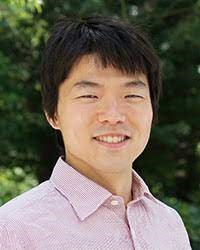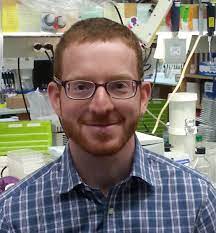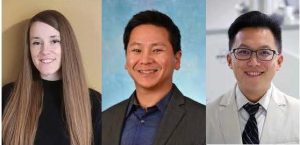Pilot Grants
Pilot Grants
Since 2020, the UNC Autism Research Center has provided pilot grant funding for interdisciplinary autism research at UNC-Chapel Hill. To stimulate multidisciplinary collaborations and incentivize faculty to generate pilot data for use in grants to the NIH and other external agencies, the Center has awarded several interdisciplinary research grants. This is an archive of the grants funded by the UNC Autism Research Center.
FALL 2020
Damaris Lorenzo, Ph.D., and Toshihide Hige, Ph.D.
Study Title: Understanding the synaptic pathways of pathogenic variants in novel ASD gene SPTBN1
Research Impact: This project will advance autism research by uncovering disease mechanisms underlying pathogenic variants in SPTBN1, a novel ASD gene. This will shed light into the cytoskeleton as a functional node in ASD pathology and demonstrate the power of transgenic flies to screen and functionally characterize genetic variants associated with ASD.
(This $50,000 grant was co-funded by the UNC Autism Research Center and the North Carolina Translational and Clinical Sciences Institute)
SPRING 2021
Rebecca Grzadzinski, Ph.D., and Jose Rodriguez-Romaguera, Ph.D.
Study Title: Elucidating the Neurocircuitry of Atypical Social Arousal in ASD
Research Impact: Capitalizing on the cross-disciplinary collaboration of Drs. Grzadzinski and Rodriguez-Romaguera, this project examines pupillary responses to social stimuli in infants at low and high familial likelihood for ASD. Data gathered will provide the foundation for a series of larger, high-impact translational studies that mechanistically dissect the neurocircuitry underlying dysfunctional social arousal in ASD.
(This $50,000 grant was co-funded by the UNC Autism Research Center, the North Carolina Translational and Clinical Sciences Institute, and the UNC Neuroscience Center)
Jessica Girault, Ph.D., and Jason Stein, Ph.D.
Study Title: Determining the role of neural progenitor proliferation in explaining interindividual differences in autism-related behaviors
Research Impact: This project will be the largest within-family, case-control iPSC study in ASD. Results will serve as preliminary data for future grant applications to study the pathogenesis of brain overgrowth in ASD as a potential target for pre-symptomatic intervention. iPSC cell lines will be a renewable resource available to other investigators within the UNC ASD research community.
(This $50,000 grant was co-funded by the UNC Autism Research Center, the North Carolina Translational and Clinical Sciences Institute, and the UNC Neuroscience Center)
WINTER 2023
Sallie Nowell, Ph.D., Samantha Pflum, Ph.D., and Corey Shaw, M.Ed.
Study Title: With Our Powers Combined: Uniting UNC’s Gender and Autism Expertise to Meet the Needs of Adolescents at the Intersection of Autism and Gender Diversity
Research Impact: Combining the expertise of the UNC Gender Equity and Wellness Initiative with autism specialists at TEACCH and FPG, this project will identify pressing needs and address critical gaps in the care of adolescents at the intersection of autism and gender diversity. Due to the sensitive nature of this population being susceptible to discrimination, mental health disorders, and social-communicative differences, we need this pilot year to listen to the experiences and needs of adolescents at this identity intersection and build trust in research. Using mixed methods to fully understand the problem and partner with key participants, particularly adolescents with autism and gender-diverse identities and their family members, is critical for filling these voids in care and ensuring that a future NIH R21 proposal is aligned with the priorities of the population being treated.
(This $25,000 grant was funded by the UNC Autism Research Center)
Dea Garic, Ph.D., Mark Shen, Ph.D., and Yen-Yu Ian Shih, Ph.D.
Study Title: Developing Brain-Wide CSF Flow Imaging for Infants at Likelihood for Autism
Research Impact: This project has the potential to: (1) impact our understanding of how the nervous system and immune system interact in the early development of autism; (2) elucidate a biological mechanism for more targeted therapeutics; and (3) inform the dosing and drug biodistribution for upcoming clinical trials using intrathecal CSF drug delivery. Furthermore, this research has the potential to guide the discovery of potential therapeutic biological targets (e.g., improving CSF flow and increasing the clearance of inflammation) early in life when therapeutic supports could have the greatest impact in reducing medical challenges (e.g., seizures, gastrointestinal problems) and ultimately improve quality of life.
(This $25,000 grant was funded by the UNC Autism Research Center)
Adam Hantman, Ph.D., Liz Jalazo, M.D., and Ben Philpot, Ph.D.
Study Title: A Comparative Study of Abnormal Movements in Angelman Syndrome Across Mice and Humans
Research Impact: Despite the prevalence of movement abnormalities in a range of neurodevelopmental disorders (NDDs), a detailed understanding of the neural underpinnings of abnormal movements has not been established. While mouse models of NDDs allow for the study of brain-wide neural activity, a challenge remains in establishing the human relevance of behaviors typically studied in mice. Reaching and grasping actions are unique ethologically relevant behaviors that are conserved between humans and mice. The study of reaching and grasping actions have been previously used to understand fundamental neural processes underlying motor function, such as executing precise movements consistently, and cognitive functions, such as decision-making and action planning. We have identified a specific impairment in skilled single-pellet reaching and grasping movements in Ube3am–/p+ mice, a mouse model of AS. The impact of this finding would be greatly increased if similar deficits were found in humans with AS. In this project, we will establish a detailed comparison of reaching and grasping movements across mice and humans. If similar phenotypes are observed, this would allow us to use mouse models of AS as a testbed to interrogate the neural mechanisms of abnormal movements. With these insights, we will design and test novel circuit-specific interventions, such as targeted gene therapy in mice. Developing a framework that identifies convergences across humans and mice with Angelman Syndrome would provide a proof of concept for a larger effort investigating the neural basis and treatments for a wide range of neurodevelopmental disorders.
(This $25,000 grant was funded by the UNC Autism Research Center)








